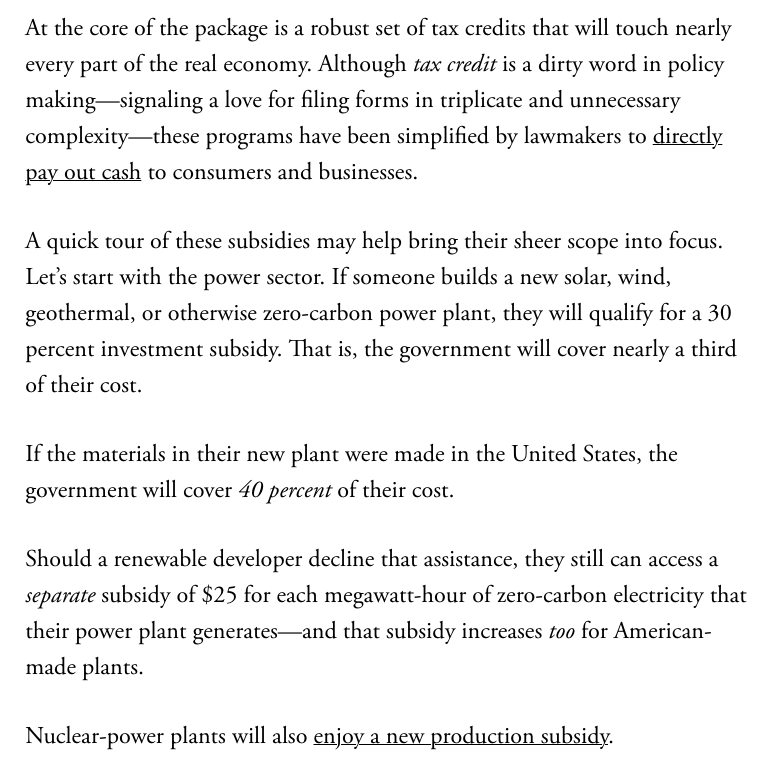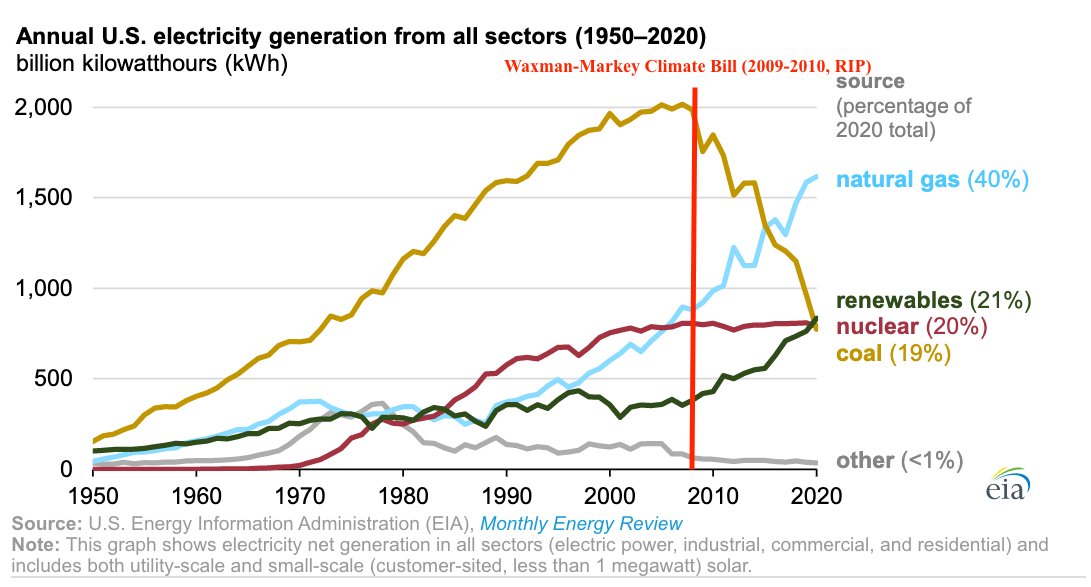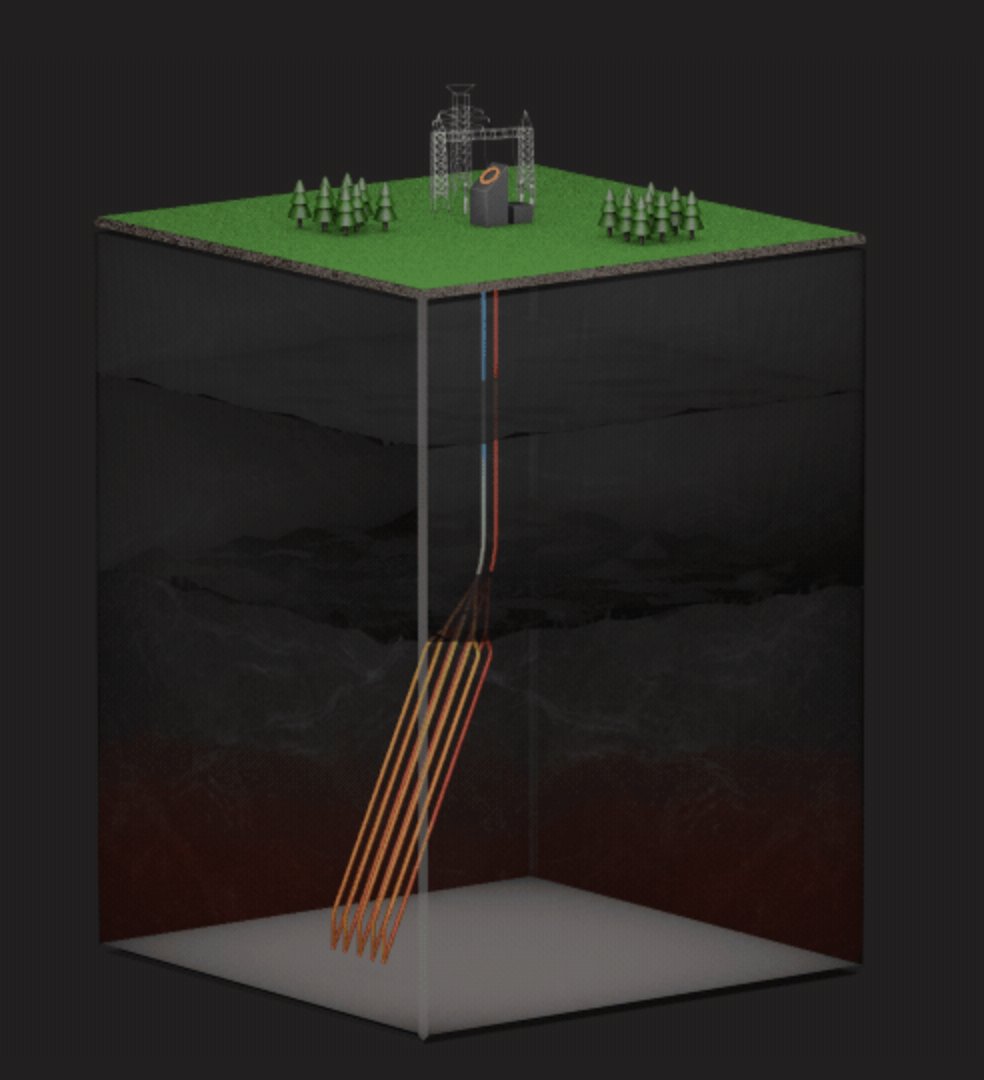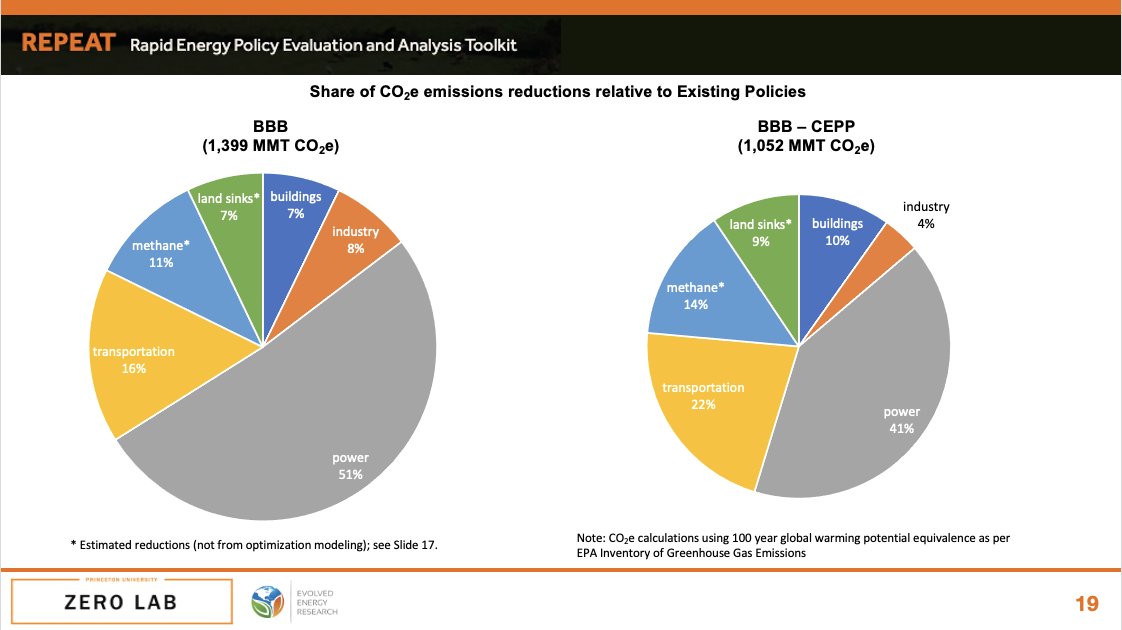
What does the #BuildBackBetter Framework (whitehouse.gov/briefing-room/…) and emerging bill have in store for #ClimateAction and #CleanEnergy? @yayitsrob gives you a great tour through the key components @TheAtlantic theatlantic.com/science/archiv… A brief 🧵 w/Rob as our guide...
First, a $320 billion package of tax credits for electric vehicles, heat pumps and energy efficient buildings, clean energy, transmission, energy storage, carbon capture and industrial decarbonization, are the core of the plan.
Here's what is in store for the power sector ⚡️ ⤵️
Here's what is in store for the power sector ⚡️ ⤵️

There are new tax credits for investment in electricity transmission (a key priority, since @Princeton Net-Zero America study shows we've gotta expand US transmission by as much as 60% by 2030) and energy storage and a new $180/ton credit kick-start direct air capture technology 

Then there's the stuff you and I will see in our own lives: tax credits, fully refundable in most cases, for consumer and business purchases of electric vehicles, energy efficient building upgrades, electric heat pumps to electrify water or space heating, rooftop solar and more. 

But wait, that's not all: one of the areas that has been significantly strengthened in the emerging final bill (relative to the House version from September) is funding for industrial decarbonization. Industry is neck-and-neck with transport & power for largest emitting sector. 





There's even more the intrepid @yayitsrob didnt have time/space to include: grants for state efficiency & EV programs, $ to build out EV charger networks and key long-distance transmission, funding to electrify buses, postal service fleet & ports, a new "Green Bank'...
...low-cost financing programs at DOE to backstop investment in clean energy, advanced manufacturing & transmission, the creation of a new Civilian Climate Corps, significant programs to help ag & forestry sectors suck up CO2 & rural utilities to shift to cleaner power sources.
So is it enough? Here's @yayitsrob's closing. Our @Princeton/@EvolvedEnergy REPEAT Project (repeatproject.org) is standing by to model every provision in the final bill, count up the tons & see how it compares to Bidens' 2030 goal to cut US emissions to 50% below peak level 

But beyond the tons, I think @yayitsrob's piece starts to get at something that is underappreciated about the #ClimateAction programs in the #BuildBackBetter deal. They aim to not just reduce tons but FUNDAMENTALLY TRANSFORM every major emitting sector in the economy.
From electricity and industry to transportation, buildings and agriculture, the BBB has programs in each sector designed to drive transformative innovations and new technologies, grow new industries, build supply chains, reshape consumer and business habits and practices and more 

Just think about how much the power sector has been transformed over the past decade, since the last time Congress tried to pass major #ClimateAction policy in 2009/2010, thanks to tax credits & support for wind, solar, EVs, and yes, unconventional gas (shale gas). 



So if/when #BuildBackBetter passes, it would not only put the US w/in striking distance of 2030 emissiosn goals, it would also transform each major sector of the economy and set up much greater cuts -- all the way to net-zero. And THAT is perhaps the most important part of all.
Thank you for coming to my TED talk ;-)
@threadreaderapp unroll please
• • •
Missing some Tweet in this thread? You can try to
force a refresh









